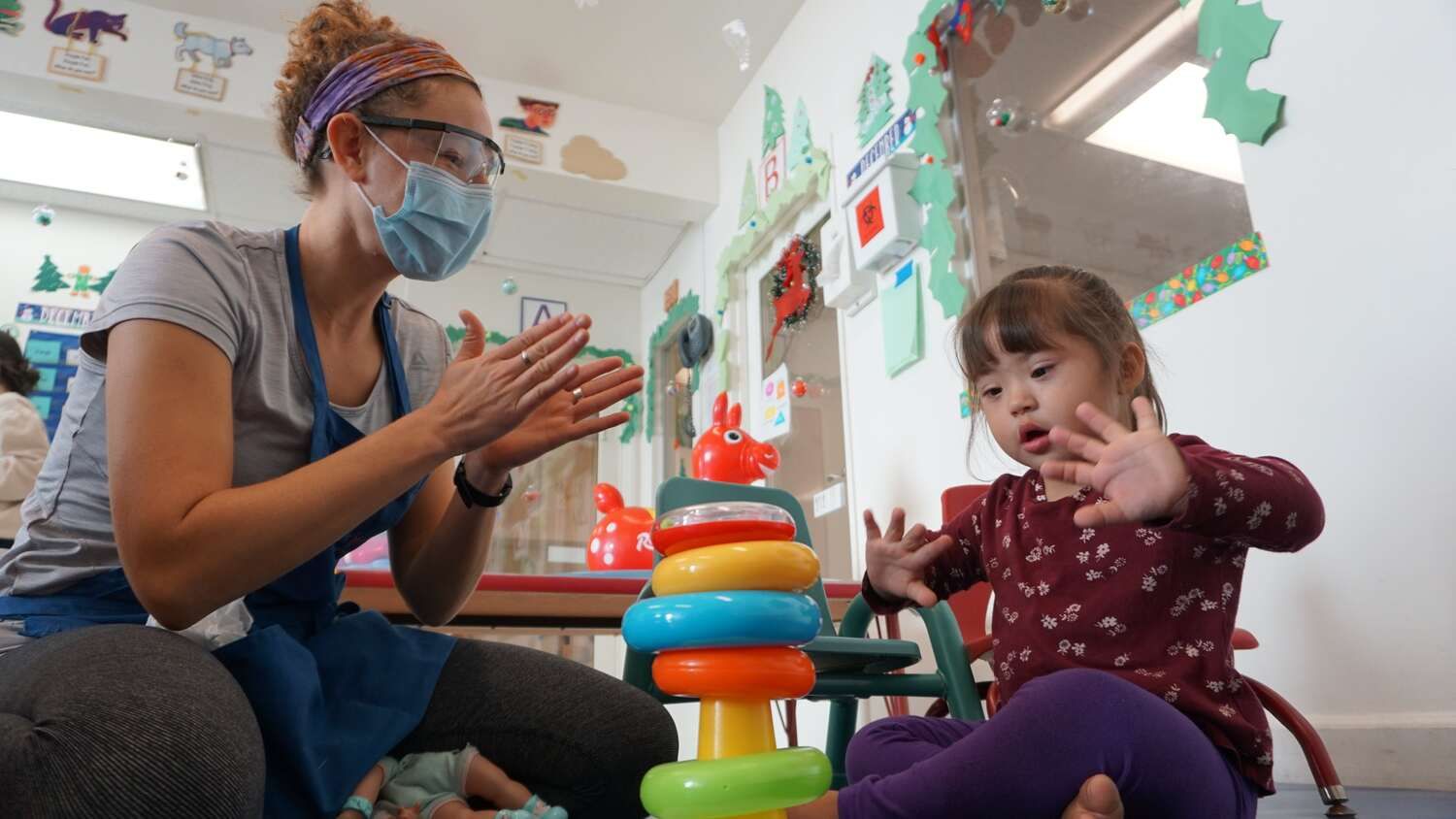
A mother finding hope for her daughter’s future at Momentum – Romina’s Story
During a session with her Momentum speech therapist, young Romina presses a button on an iPad that sounds the word “love” as she holds a toy baby in her arms.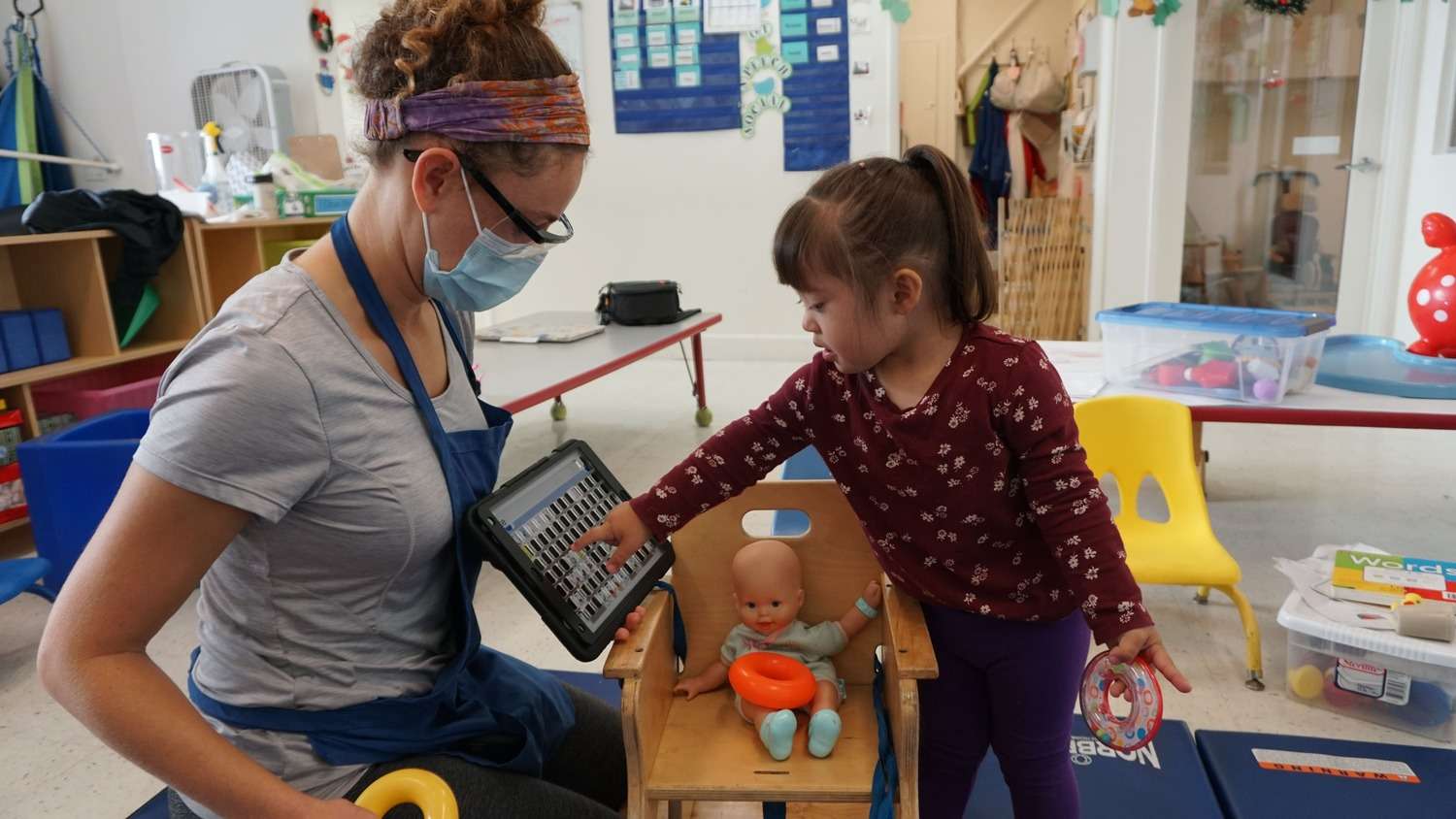
Isabelle, the 2-year-old girl’s speech therapist, echoes the device. “You love baby?” she asks, as Romina gives the doll a hug.
This learning moment is part of Momentum’s Leaps and Bounds program, where various therapies are available to help children with speech and language development. While she has down syndrome and receives support with her speech, Romina is a very expressive and active child. She uses on her iPad the LAMP Words for Life application, which can assist her self-expression through a speech-generating technology. This system allows Romina to follow a consistent motor plan to build her vocabulary.
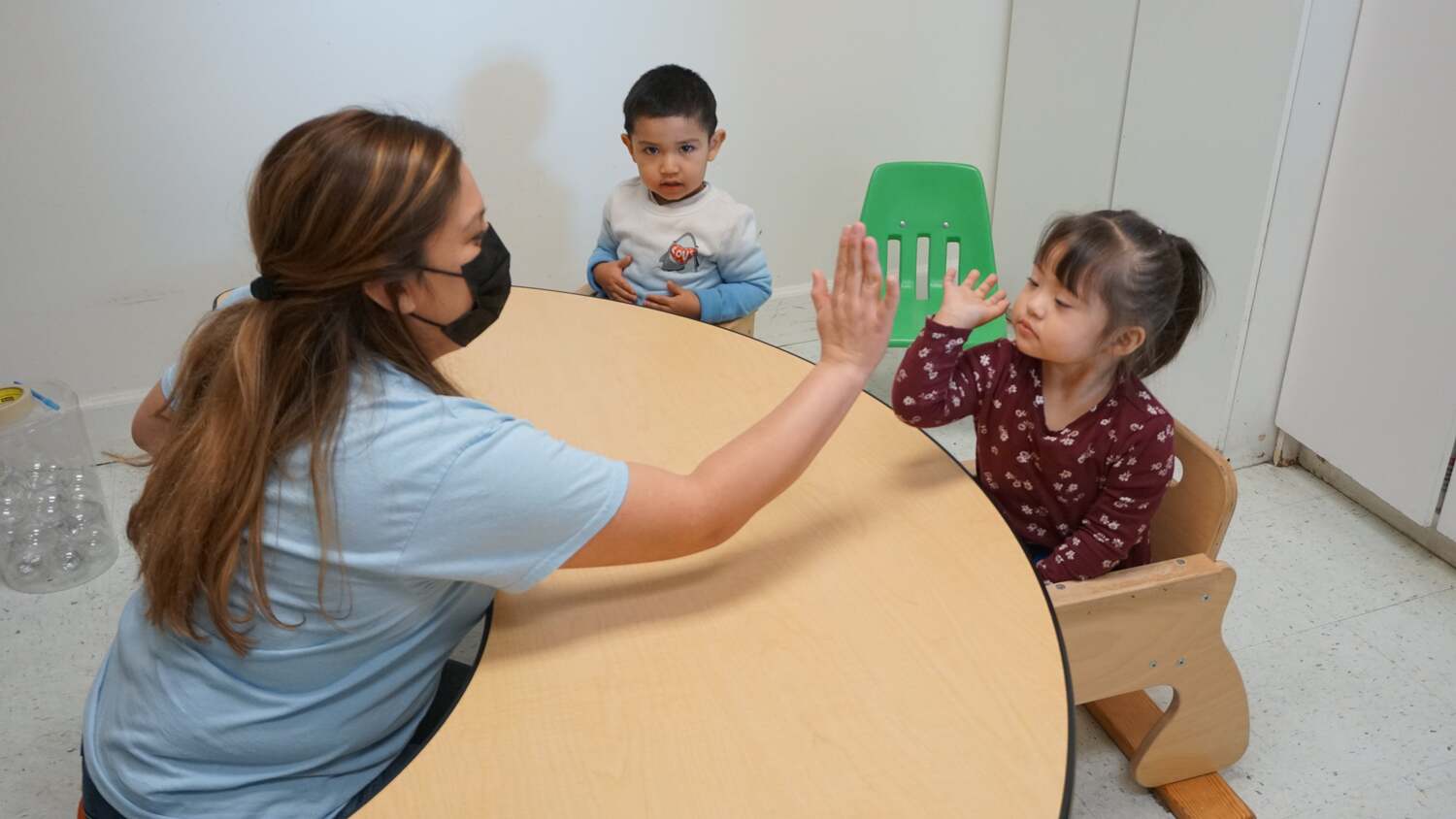 During the visit with her therapist, Romina looks back at the device and selects the word she wants to use. The word “little” comes from the iPad, as Romina points to it to confirm.
During the visit with her therapist, Romina looks back at the device and selects the word she wants to use. The word “little” comes from the iPad, as Romina points to it to confirm.
“I try to give meaning to anything she’s telling me,” Isabelle says. Romina’s progress has exploded since joining Momentum’s pediatric programming in Torrance. Her mother, Lucia, was referred during the pandemic and began Romina’s journey through telehealth therapies.
“I was afraid I wasn’t going to be able to find her the help she needs,” Lucia said. “Thanks to Momentum, I’m able to help, as well, and see that progress.”
Telehealth can not only serve as a tool for children but for families who learn the therapies alongside their kids. For Lucia, it meant investing the time to learn how to assist in Romina’s development. Throughout the experience, Romina’s older, protective sister has cheered Romina as she completes each exercise.
“In the beginning, there was quite a learning curve with telehealth for all families,” said Blanca Navarro, an Early Intervention teacher and a bilingual specialist at Momentum since 2012. “We realized we needed a lot of involvement from parents with their children. They needed to be our hand in therapies. Our methods are very hands-on. Lucia was very committed to being that helping hand for Romina’s growth.”
Blanca worked closely with Lucia, who does not speak English, to ensure language was not a barrier to meeting the family’s needs. “I personally feel it has been incredibly helpful that I speak Spanish. Families that don’t speak English have expressed how difficult receiving services can be if there isn’t Spanish available.”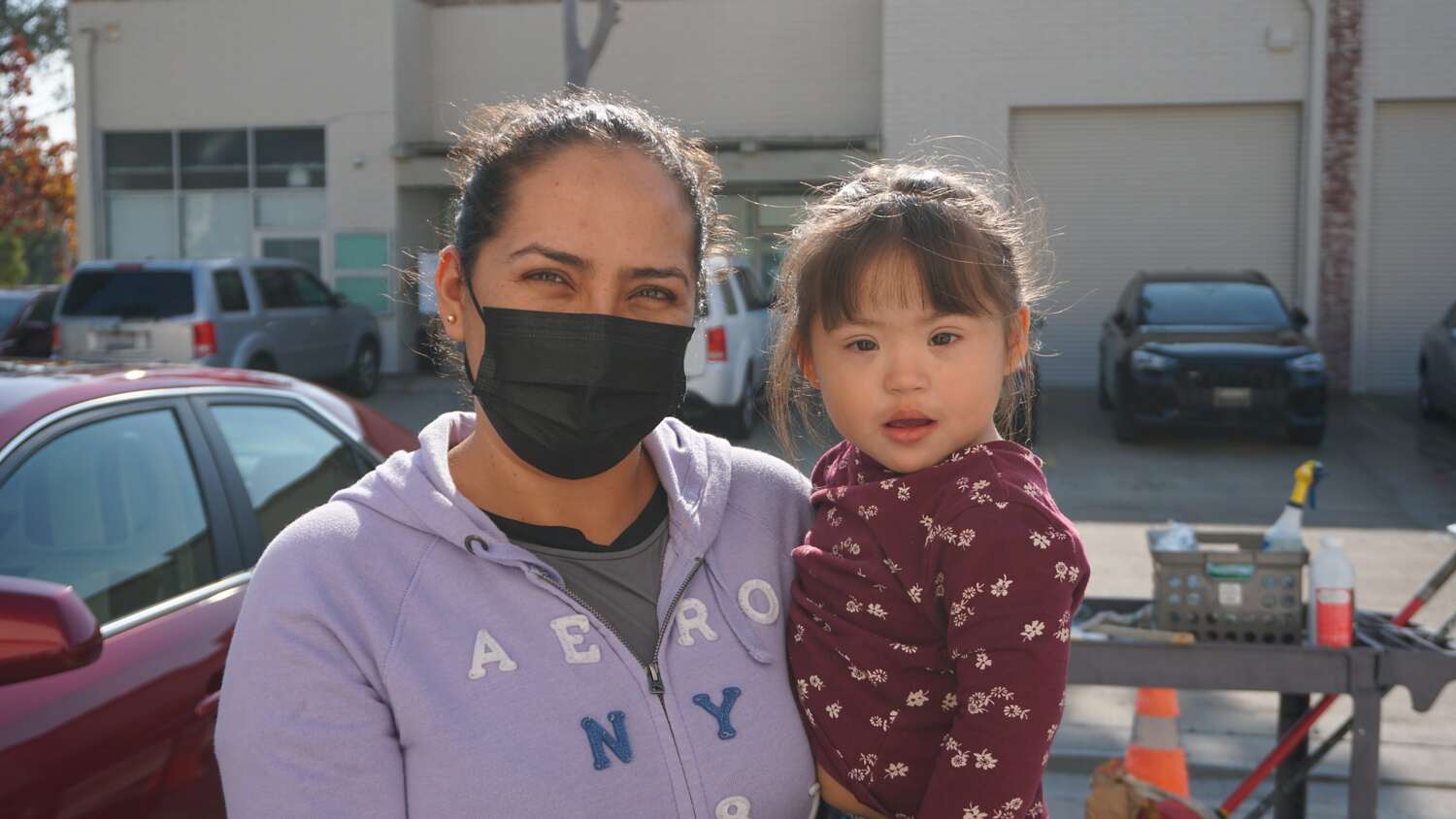
“It makes a big difference. Then there is the cultural aspect,” Kimberlee Elliott, Director of Early Intervention, said. “Families, when you’re from their culture, they know you get their struggles in the outside community. That’s why being a family-center clinic, it’s so nice to have a multicultural staff. I think that’s key for helping our families be their child’s best advocate and best teacher.”
Romina now attends classes in person. The telehealth services have offered the building blocks for her development to accelerate quickly and in a comprehensive way.
For other families with a child diagnosed with down syndrome, Lucia urges them not to be afraid of needing or asking for help. “When I was pregnant, my world felt like it was coming down with the doctors told me did not look well. After finding out the diagnosis, I relaxed because I have seen other kids with down syndrome. Once I saw Romina, I was in love. And she’s the best gift God has ever given me.”
As Romina gets older, Lucia hopes the early intervention will help offer her a path to a happy and independent life. Donate to Momentum to help directly impact the futures of children like Romina here. Watch Romina use the LAMP device.
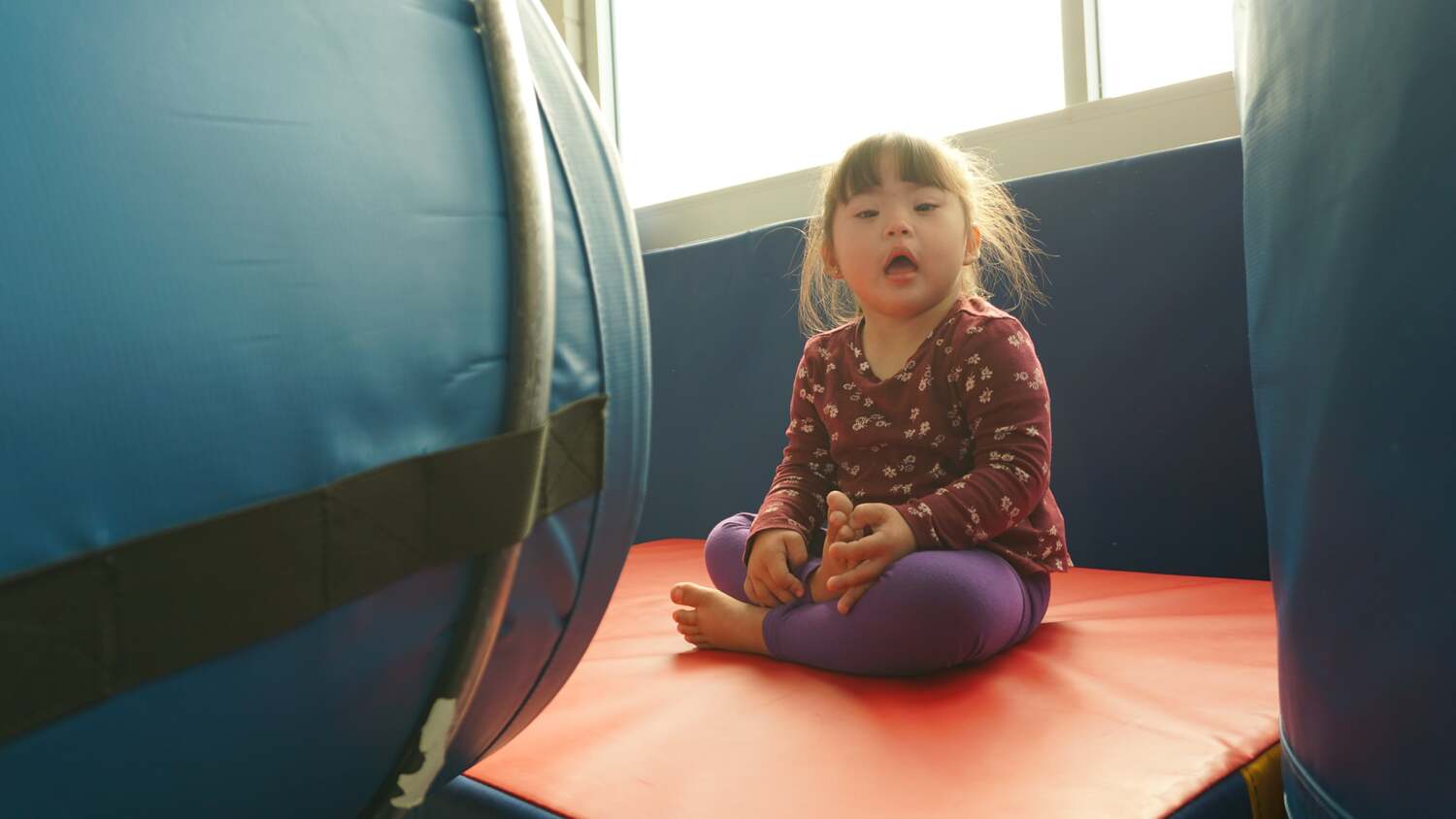
disability services, down syndrome, kimberlee elliott, LAMP, los angeles, momentum, momentum ptn, pediatric clinic, pediatric therapy, pediatric therapy network, ptn, torrance